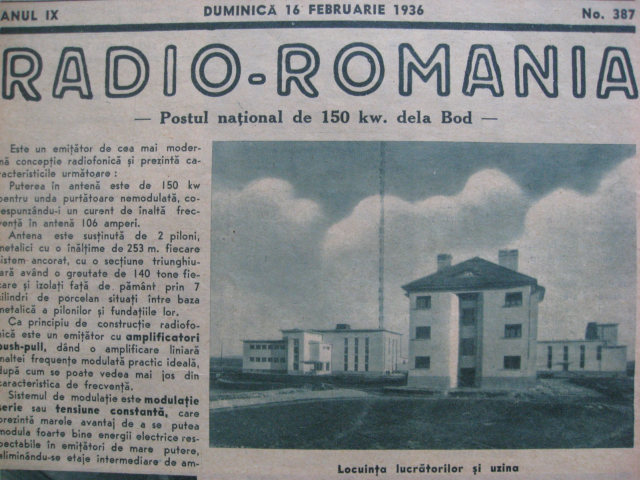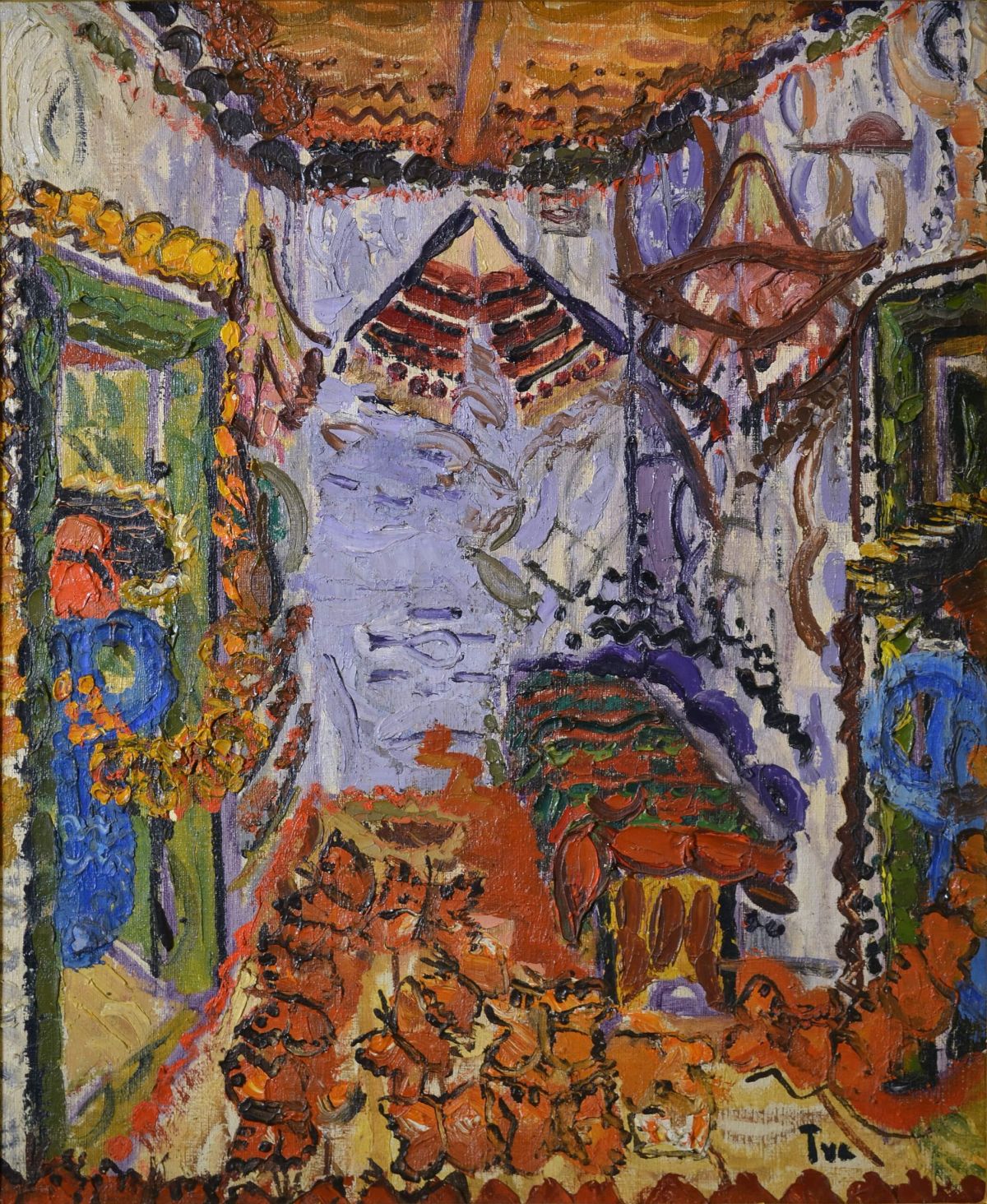Radio Bod
The oldest AM radio station in Romania still in operation
Warning: Trying to access array offset on null in /home/web/rri.ro/public/wp-content/themes/rri/template-parts/content.php on line 53

Warning: Trying to access array offset on null in /home/web/rri.ro/public/wp-content/themes/rri/template-parts/content.php on line 98
Steliu Lambru,
05.03.2022, 14:00
Radio Romania has been broadcasting permanently since 1928. It has been the most constant source of information and an active witness to the 20th Century landmarks of Romanian history.
The first broadcast station was obviously located in Bucharest. But in order to cover the entire national territory, the station network had to be systematically expanded in the 1930s. One of the most important local stations airing the programmes of the central structure was in the village of Bod, in Brașov County, central Romania.
Today, Bod comprises the village itself and the Bod colony, located some 10 km north of the city of Brașov. The village has around 4,000 inhabitants, 84% of which are ethnic Romanians, 8% Hungarians and 1% Germans. The settlement was first mentioned in official documents dating back to 1211, when Saxon settlers from the region between the Rhine and Mosel arrived here. In 1241, the village was burnt to the ground by Tatars. The German name of the settlement, Brenndorf, means precisely burnt village. In 1889, a sugar factory was opened in Bod, and the houses built for the factory workers are the core of what is known today as the colony.
It is precisely in Bod Colony that in 1933 – 1934 the Romanian government built a longwave radio station which is operational to this day. It is in fact the only longwave station still in operation in Romania. After August 23, 1944, when Romania joined the Allies, Bod saw heavy fighting between Romanian and German troops for control over the station.
In the ’90s, the Romanian Radio Broadcasting Corporation’s Oral History Centre documented the history of the Bod radio station with interviews taken to people who took part in its building. One of them is the locksmith Gheorghe Crisbășanu.
Gheorghe Crisbășanu: In 1934 I started working at the Bod radio station. I installed the 20 kW unit which was supposed to maintain the wavelength for the 150 kW station due to be installed later. I worked with engineer Ştiubei, the son in law of the writer Mihail Sadoveanu, with Lică Georgescu as manager and with another engineer, Schnoll, who was supervising the operation. The station had 2 panels with 4 vacuum tubes. The cooling system was located in a separate room, with a pump circulating the industrial water used for cooling the distilled water that was cooling down the filaments of the tubes. After that the 150 kW station was built, and the old 20 kW one was dismantled and taken to Chişinău.
Engineer Alexandru Lică was the manager of the Bod radio station and one of the people who took part in its inauguration:
Alexandru Lică: On the night when the Bod radio station was to officially begin its operation, I was in Bucharest for a meeting of the Board. The Board members were discussing the commissioning of radio stations. Among them was a guy called Dicem, representing the Marconi corporation, which had built the station. He was an expert, a scientist and he had come to Bucharest precisely to commission the unit. And he said, ‘We will commission the station provided that Mr. Lică Georgescu is there.’ We obviously had someone there, the engineer who had been monitoring the station for a year, but they gave me a car and at midnight I left for Bod, where the station was already on air, but without a programme, it was only for warm-up. When I got to Bod, I put the central studio through and we launched the official broadcast. It was a great satisfaction for me.
Gheorghe Cristoloveanu worked at the Bod station and still remembers the atmosphere at work and the change in the relations between people after the communists took power:
Gheorghe Cristoloveanu: We used to get along perfectly, there was perfect harmony and I am not overstating anything. Later on, in ’49-’50 when the communists took power, it was a little more difficult because we had to learn to keep quiet. I stayed with radio Bod because my salary was not really big. Because I had fought in the war and had received every possible medal, including the Iron Cross and Michael the Brave, I was under observation so to say, or rather I was afraid I might get in trouble. This is why I kept to myself, I was more restrained than others. We used to get along quite well, there was this club where we would get together and talk, play ping-pong and backgammon. I wouldn’t say it was a difficult time, we were around 50-60 employees and we all knew each other, we knew what to say when speaking to this or that person and whom to trust.
The Bod station continues to broadcast in the longwave band for 87 years. An AM veteran, today it competes with FM stations and with the internet. (A.M.P.)




























